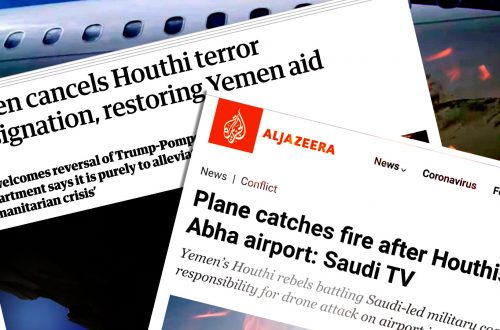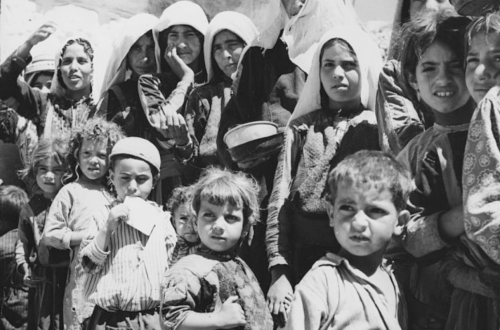Guest post by DaveM
Three days ago (12 January), while Lebanese Prime Minister Sa’ad al Haririi was traveling from Washington to Paris for a meeting with Sarkozy, Hezbollah-backed opposition MPs walked out of the National Unity government, throwing Lebanon into yet another political crisis.
The reasons they gave for their mass resignation were vague, but the most obvious conclusion to reach is that they want to bring down the government and replace it with one which will reject the findings of the Special Tribunal for Lebanon.
This is what they appear to find so offensive that it requires bringing down the government:
On 13 December 2005, the Government of the Republic of Lebanon requested the United Nations to establish a tribunal of an international character to try all those who are alleged responsible for the attack of 14 February 2005 in Beirut that killed the former Lebanese Prime Minister Rafiq Hariri and 22 others. Pursuant to Security Council resolution 1664 (2006), the United Nations and the Lebanese Republic negotiated an agreement on the establishment of the Special Tribunal for Lebanon. Further to Security Council resolution 1757 (2007) of 30 May 2007, the provisions of the document annexed to it and the Statute of the Special Tribunal there to attached, entered into force on 10 June 2007.
With the submission of the indictment imminent, the Hezbollah-led opposition MPs (also known as the 8th March bloc) appear to be making a preemptive strike.
It’s worth noting that the opposition MPs were in the cabinet as a result of the Doha Agreement which established “a national unity government composed of 30 ministers distributed among the majority (16 ministers), the opposition (11 ministers) and the president (3 ministers), and by virtue of this agreement, all parties commit not to resign or obstruct the government’s actions.”
This was the compromise following Hezbollah’s armed assault on its fellow Lebanese in May 2008 and their continued stalling of the election for president at the end of President Lahoud’s term in office. The position which remained vacant from November 2007 until May 2008
So what now? Things are far from clear, and nobody seems sure what the next move is. With very little information in English, I tried looking at Arabic sources and that’s when things got very Kafkaesque, with talk of failure to carry out one’s obligations (whatever they are), obstructing the Syrian-Saudi endeavour (whatever that is) and foreign hands (whom they belong to it’s not clear, but according to Hezbollah they have to be cut).
Here’s Al Arabiya’s 13th January news report on events, with my comments in brackets:
Newsreader: “Lebanese PM Sa’ad alHaririi arrived in Paris, from Washington, to meet Sarkozy, after his meeting with US president Barack Obama. The meeting between Hariri and Sarkozy comes a few hours after 10 opposition MPs in collaboration with with what they called the King [?] minister, brought down the Lebanese government, turning it into a caretaker government.”
Gebran Basil (Energy & Water Minister): ” The ministers assembled here are presenting their resignation from this government, and hope that his excellency the president of the republic will quickly take the required steps to set up a new government”
Reporter: “After hours of anticipation, the opposition ministers resigned, and shortly after them Minister Adnan Said Hussein, who was chosen by the President [i.e. neither 8th March opposition bloc or 14th March majority bloc] to turn the government of Sa’ad al Haririi into a caretaker government. The reasons stated being the failure of the government in carrying out its obligations and the Syrian-Saudi initiative reaching a dead end. Along with the inability of the other side [the 14th March group lead by Sa’ad al Haririi] to transcend what the opposition MPs refer to as American pressure.
“The reading of this by the other team [the 14th March bloc] is merely a new step by the opposition to escape from the [effects and ramifications of the] Special Tribunal.
“The opposition’s next moves are still not clear, however the main powers in the opposition affirmed to Al Arabiya that the escalation will only be political, and the likelihood of resorting to the street in a security sense [civil or armed unrest] is inconceivable at this current stage.”
Opposition spokesman: “The opposition used and resorted to a democratic and constitutional procedure, despite all the doubts and the policy of intimidation which was employed against the opposition. But the opposition surprised everybody by being democratic in its dealing with the situation, and resorted to a democratic constitutional procedure. Naturally, things will continue along that way, on the hope that foreign hands won’t extend.”
Reporter: “The unlikelihood of a security option [that is, Hezbollah and their allies taking to the street] does not diminish the seriousness of the political crisis, which as it currently appears, could lengthen. The opposition will endeavour to form a government which will be able to take a decisive and rejectionist position on the Special Tribunal. However the opposition did not possess the parliamentary majority which would enable them to form this government. And the [current] parliamentary majority appear determined to rename Hariri [as PM] something that Fuad Siniora and others have confirmed to Al Arabiya. And Hariri, who hasn’t yet announced whether or not he wants to form a new government, knows that even if he did he would as a consequence face many difficulties, the first and not the last one being the ability of the opposition to disrupt it.
“Sa’ad Hariri’s first government is 14 months old, the National Unity Government, partly stalled since its formation and completely stalled for the last long weeks. From a government which doesn’t meet, to a caretaker government. A caretaker government which could last longer than the original government. At the very lest this is what some are betting on. Alia Abrahim, Beirut.”
Clear as mud then. It’s as if Arabic, which isn’t exactly a language known for its precision and brevity, has upped the euphemism levels a bit more.
After all you don’t need accountability or clarity if you have your own Syrian-Iranian backed militia, the ability to accuse your opponents of being Zionist lackeys for simply wanting a sovereign democratic state free of gunmen, and a load of flowery metaphors and intangibles to hide behind.
The website Now Lebanon has the best take on the events which are just part of an ongoing series of blackmail attempts orchestrated by Hezbollah. None of this is new.
Wednesday’s cabinet walkout led by March 8 ministers is the latest outrageous setback, both to Lebanon’s bid to build an independent, sovereign and democratic nation as well as its quest for justice and respect for the rule of law. This time the objective is to destroy, at any cost, even to the country, the Special Tribunal for Lebanon, which is likely to indict members of Hezbollah in the killing of former Prime Minister Rafik Hariri.
Michael Young, political editor of the Daily Star, concludes:
It’s too early to tell. But there is much more to the situation than meets the eye. There always is.
What happens next is anyone’s guess.

